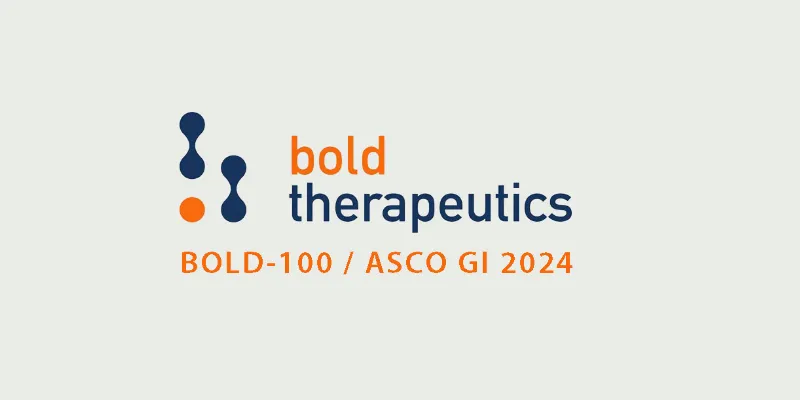New Treatment for Colorectal Cancer: BOLD-100 Shows Positive Results at ASCO GI 2024


ONCOLife |
23 January 2024
Bold Therapeutics presented positive Phase 2 results for BOLD-100 in treating advanced metastatic colorectal cancer at the ASCO Gastrointestinal Cancers Symposium 2024. Combined with FOLFOX, BOLD-100 showed promising efficacy and safety. The trial reported favorable outcomes in both progression-free and overall survival, accompanied by a good safety profile.
The drug, which targets a crucial replication and survival pathway, achieved a median progression-free survival of 3.9 months and an overall survival of 9.6 months.
Jim Pankovich, EVP of Clinical Development at Bold Therapeutics, expressed optimism about the unexpectedly favorable safety profile of BOLD-100. He noted, "Not only are we encouraged with BOLD-100's efficacy, but we are excited about BOLD-100's unexpectedly favorable safety profile, which has allowed patients to remain on treatment considerably longer than originally expected and thus maximizes the impact of the treatment combination."
The drug was tested in combination with FOLFOX – a standard chemotherapy regimen – in patients who had previously been treated with FOLFOX/CAPOX. The trial, known as BOLD-100-001 (NCT04421820), is a multinational Phase 2 clinical trial and has enrolled 109 patients across Canada, the United States, Ireland, and South Korea, covering a range of gastrointestinal cancers.
Key Findings
The results presented were particularly focused on 36 patients with advanced metastatic colorectal cancer. These patients, who had undergone an average of four prior therapies, showed a median progression-free survival (PFS) of 3.9 months and a median overall survival (OS) of 9.6 months.
Notably, the objective response rate (ORR) was 7.0%, with a disease control rate (DCR) of 76%. These figures, especially the ORR and DCR, are encouraging signs of the drug's potential efficacy.
Furthermore, the combination continued to demonstrate a well-tolerated safety profile, with no new safety signals reported. Treatment-emergent adverse events (TEAEs) were observed in 92% of patients, with neutrophil count decreases (47%), nausea (42%), and fatigue (19%) being the most common TEAEs.
Comparatively, BOLD-100 shows a favorable profile against existing treatments like Taiho's Lonsurf®, Bayer's Stivarga®, and Takeda's Fruzaqla®. This is especially significant considering that the patient populations in the BOLD-100 study had more advanced disease stages.











Comments
No Comments Yet!